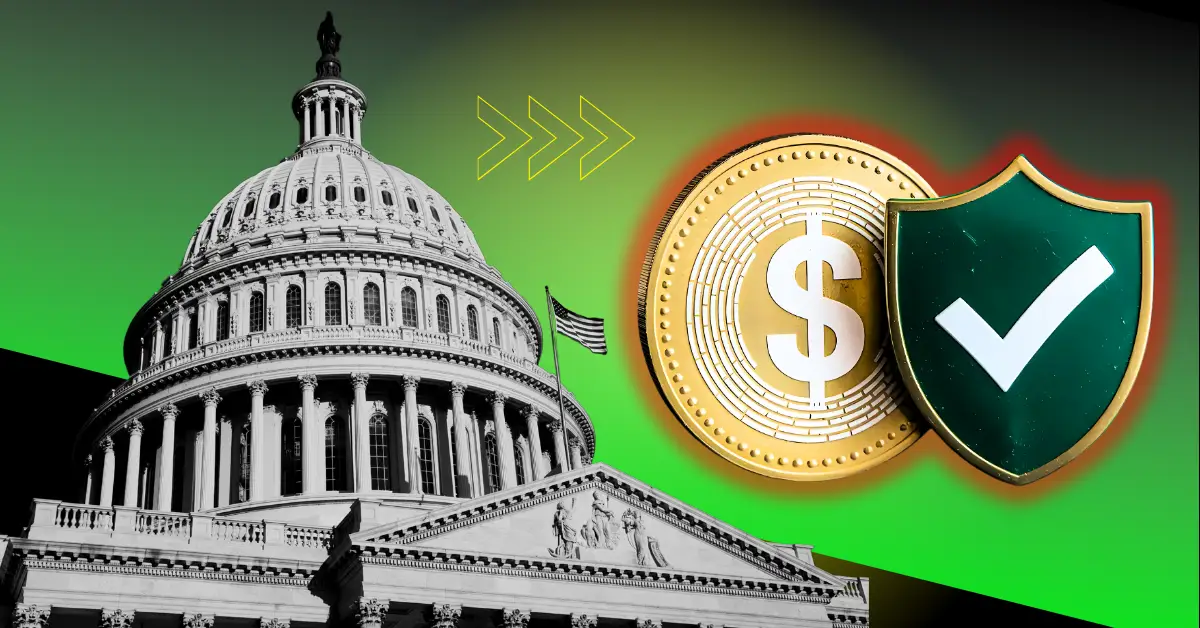Senate Majority Leader John Thune has informed Republican lawmakers that a vote on the GENIUS Act, a crucial piece of legislation aimed at regulating stablecoins, is expected before the May 26 Memorial Day break.
The bill introduced by Senator Bill Hagerty in February and passed by the Senate Banking Committee in March, seeks to regulate the issuance of stablecoins in the United States. Under the GENIUS (Guiding and Establishing National Innovation for US Stablecoins) Act, stablecoin issuers would be required to be licensed entities, known as “permitted payment stablecoin issuers.”
What Does the GENIUS Act Mean?
The GENIUS Act is designed to bring much-needed clarity and structure to the growing stablecoin market. Complementing the GENIUS Act, the STABLE Act has been introduced in the Republican-controlled House. Together, the two bills aim to set clear regulatory guidelines for the issuance of dollar-pegged stablecoins—cryptocurrencies intended to maintain a stable value by being backed by real-world assets.
Currently, stablecoins are a popular digital dollar used for fast, low-cost payments. However, the absence of clear regulations has led to concerns around safety and trust. The GENIUS Act addresses these concerns by mandating that stablecoin issuers hold full reserves, comply with anti-money-laundering regulations, and undergo regular audits. The act also makes clear that stablecoins are not classified as securities or commodities, resolving a key area of confusion.
With these measures in place, the GENIUS Act aims to foster safer growth for stablecoins, positioning them as potential competitors to traditional payment systems in the future.
Broader Regulatory Context
The GENIUS Act is part of a broader push for stablecoin regulation. In January, President Donald Trump signed an executive order forming a working group to explore stablecoin regulations and the possibility of creating a national crypto stockpile. However, while executive orders signal intent, they lack the legal weight of Congressional approval.
The timing of Trump’s order has raised some concerns, particularly after World Liberty Financial—a crypto firm backed by his family—launched the USD1 stablecoin. Critics, mainly from the Democratic camp, argue that Trump’s influence, combined with his financial ties to the firm, creates a significant conflict of interest as Congress debates this critical piece of crypto legislation.
As the Senate prepares to vote on the GENIUS Act, the future of stablecoin regulation in the U.S. hangs in the balance.
FAQ
A stablecoin is a type of cryptocurrency designed to maintain a stable value by being pegged to real-world assets, like the U.S. dollar.
The GENIUS Act will require stablecoin issuers to hold full reserves, comply with audits, and follow anti-money laundering rules.
Issuers must be licensed, hold full reserves, undergo regular audits, and follow anti-money laundering regulations.



